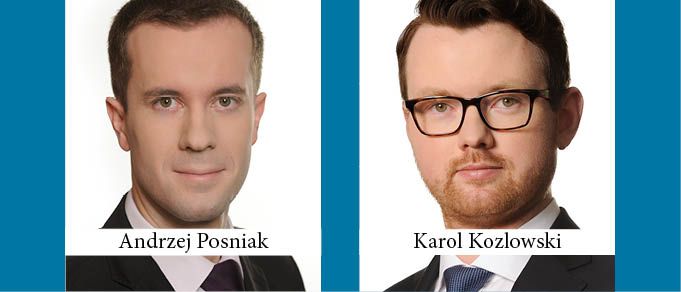The current government campaigned before the elections with the slogan “Plugging leaks in the tax system,” and it is now trying to achieve that goal by focusing its efforts on fighting harder against VAT fraud, counteracting aggressive tax optimization in income taxes, and increasing the effectiveness of tax audits.
Tax authorities, equipped with new competences, are fiercely tackling VAT fraud. The mechanism of split payments, which will enter into force in 2018, will be only one of many new fiscal administration weapons in this struggle. Under this scheme, which will only be used in B2B relationships, a purchaser will pay a sum corresponding to the net value of goods or services sold to the recipient’s current account, with a sum corresponding to the VAT amount transferred to a dedicated bank account. Use of this method will be voluntary – the purchaser will have to express willingness to use it. Taxpayers who choose this method of accounting will receive certain benefits, such as an exemption from the penal tax rate.
The Ministry of Finance is also developing ways to protect honest taxpayers, who, as a result of carelessness, have become involved in VAT “carousel” fraud and have been exposed to the possibility of losing the right to deduct input tax. To this end, consultations were held to determine the prerequisites of due diligence on the part of the buyer in domestic transactions. Any conduct consistent with these prerequisites will protect taxpayers from possible adverse consequences. The prerequisites of due diligence will probably take the form of a code of good practice.
As part of the fight against aggressive tax optimization, Poland has joined the Multilateral Instrument to Modify Bilateral Tax Treaties (MLI). As a result, 78 agreements that Poland has signed on the avoidance of double taxation may be amended. The most significant changes stipulated by the MLI include the elimination of companies’ double tax residency and the introduction of clauses that allow the refusal of artificially derived benefits under the provisions of individual treaties on the avoidance of double taxation. The MLI will enter into force at the earliest in 2018, after – in simple terms – three months following ratification by at least five signatory countries.
Taxpayers must prepare for changes introduced to the corporate income tax. The Ministry’s target group includes tax capital groups and controlled foreign corporations. At the end of June, the Ministry posted a number of warnings on its website that describe what conduct might be considered aggressive tax optimization, including optimization with the use of a sale of key assets, exchange of shares, and the establishment of a tax capital group. The planned changes also include several other solutions which are beneficial for taxpayers. For example, the requirements for the establishment and operation of tax capital groups will be liberalized.
At the beginning of March 2017 the organization of the tax administration changed radically. Audit officials also gained many new competences aimed at improving the audit process. Newly-established customs and tax offices will not have to wait seven days to begin an audit – they can start immediately following the delivery of authorization to a taxpayer. In return, the taxpayer has been granted the opportunity to correct its tax returns during the first 14 days of an audit and avoid any negative consequences. The Finance Ministry insists that the new tools that the officials have been given will not be abused, and that audits will be based on risk analysis, so that the actions of the customs and tax authorities will be precisely targeted at potential tax frauds.
In summary, changes to the Polish tax law are both global and local. Some of them result from the international obligations assumed by Poland, and some from decisions made at the state level. The local changes are consistent with the global trend of plugging leaks in tax systems and counteracting aggressive tax optimization. As this trend is likely to continue, the coming years should bring intensive development of legislation aimed at optimization practices. Taxpayers, who will have to face increasingly complex fiscal regulations, will certainly appreciate the comprehensive help of skilled and professional legal counsellors and tax advisors.
By Andrzej Posniak, Partner, and Karol Kozlowski, Tax Advisor, CMS Poland
This Article was originally published in Issue 4.11 of the CEE Legal Matters Magazine. If you would like to receive a hard copy of the magazine, you can subscribe here.
